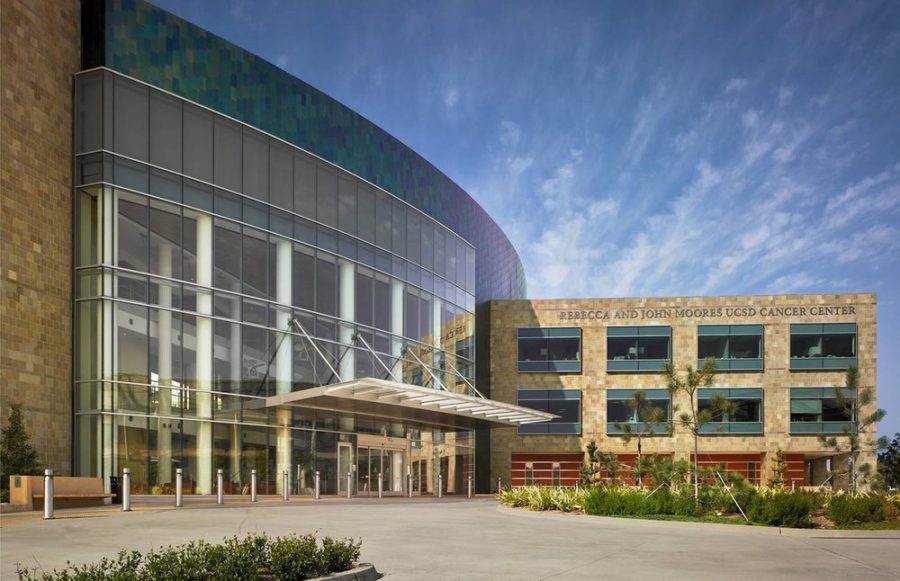Derek Ruff, a San Diegan who was diagnosed with stage IV metastatic colon cancer, will be the first patient to participate in a United States Food and Drug Administration-approved clinical trial involving the use of emerging stem cell research. The immunotherapy treatment offered through UC San Diego’s Moores Cancer Center and San Diego-based biopharmaceutical company Fate Therapeutics marks the beginning of a new type of cancer-fighting stem cell treatment, which officially began in March 2019.
After having originally battled cancer over nine years ago, Ruff was diagnosed with stage IV colon cancer in May 2018. Ruff’s condition showed no signs of improvement following three months of chemotherapy. He was eventually invited to participate in a separate clinical trial at UCSD Health’s Moores Cancer Center, but that trial did not yield any positive results.
The lack of responsiveness to any medical treatments led doctors to offerRuff a placement in another trial involving cancer-killing stem cells. He received his first dose in February 2019.
The trial–expected to go on until June 2022–uses a human-induced pluripotent stem cell-derived cell therapy known as FT500. iPSCs are human adult cells that are re-inserted into stem cells that have the capacity to replicate almost any type of cell. In FT500, iPSCs were reprogrammed into natural killer cells, specialized immune cells known for being effective at killing cancer cells, and used in treating Ruff’s colon cancer.
Beginning in December 2017 and in collaboration with Fate Therapeutics, UCSD began research on this new method. This new effort is the first to mass produce cancer-killing cells derived from stem cells. The study was led by Dr. Dan S. Kaufman, professor in the Division of Regenerative Medicine, Director of Cell Therapy, and leading expert in the differentiation of iPSCs to natural killer cells.
“This is a landmark accomplishment for the field of stem cell-based medicine and cancer immunotherapy.” Kaufman said in a statement published earlier last month by Trial Site News. “This clinical trial represents the first use of cells produced from human induced pluripotent stem cells to better treat and fight cancer.”
In an interview with the UCSD Guardian, representatives from Fate Therapeutics explained the forthcoming of clinical trial FT500, as well as its relevance to expanding accessibility of patients to the NK cells.
“Fate Therapeutics is exploring ways to harness the immune system to treat cancer through the manufacture of genetically engineered immune cells,” Wayne Chu, Ph.D, and Vice President of Fate’s Clinical Development said. “[Immune cells are] designed to specifically attack and kill target cancer cells.”
According to Fate Therapeutics’ Chief Development Officer, Bob Valamehr, the trial, which received clearance by the FDA in November 2018, took approximately three years to obtain approval.
Chu noted that the “off-the-shelf” treatment is a game-changer due to its strong potential benefits offered in the progression of methods to defeat cancer, and when compared to existing treatments where a cell therapy called chimeric antigen receptor, or CAR T cells are more widely known in the market.
“The use of iPSC derived therapies such as those being developed at FATE presents a tremendous opportunity to develop true off-the-shelf cellular therapies for the treatment of cancer,” Chu said. “[The therapy] has multiple potential advantages over current-generation cellular therapies.”
This method is beneficial to patients because there would be less of a time delay to access the immunotherapy. Patients would now have the ability of receiving the treatment multiple times instead of in singular session. The therapy will also avoid serious side effects prevalent in prior existing cell therapies.
Fate Therapeutics and the Moores Cancer Center are currently enrolling any new patients recommended by their physicians with advanced stages of cancer, where conventional treatments had no lasting or positive impact and face limited to no alternative treatment options. Those interested in learning more about FT500 clinical trial, including eligibility criteria, are encouraged to visit www.clinicaltrials.gov.
Photo courtesy of UC San Diego.









Peggy Kwiatkowski • May 14, 2019 at 5:34 pm
I would love to be a candidate for stem cell FC500 trial. I’ve had Stage 4 rectal cancer since 2015. I’ve had 2 surgeries, one which is HIPEC, plus radiation and 54 chemo treatments. Tests have shown I’m not a candidate for traditional chemo anymore. I had no chemo after HIPEC which was last July.
Tatiana Cericola • May 14, 2019 at 9:03 am
I have stage 4 Colon rectal metastasis to my liver . I’m on my 5th Chemotherapy FolFox and avastin. But my oncologist told me I couldn’t get the last chemotherapy because my white cell were too low , instead they put me Neulasta shots and made really sick.